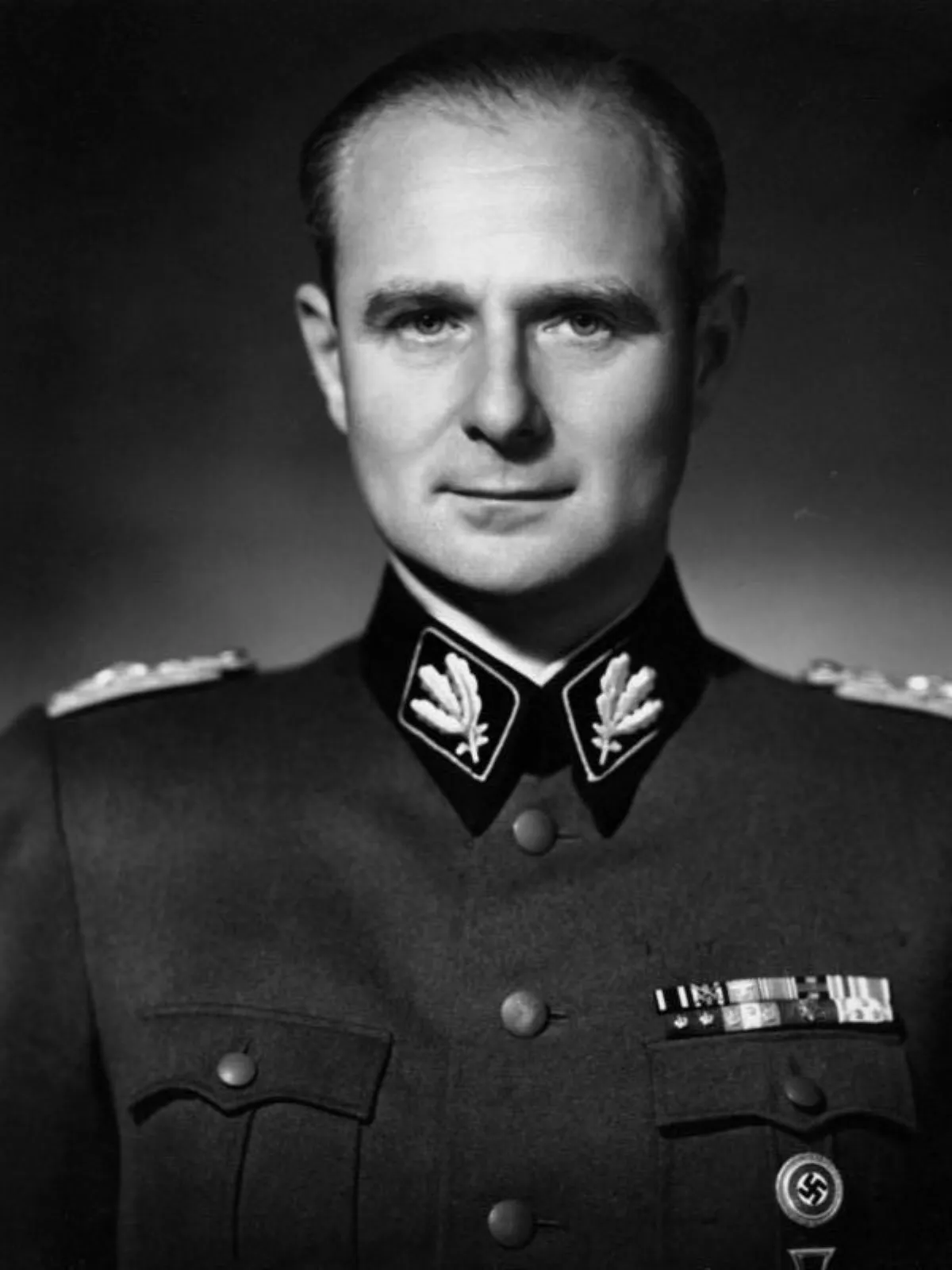 1.
1. Karl Friedrich Otto Wolff was a senior German SS officer who served as Chief of Personal Staff Reichsfuhrer-SS and an SS liaison to Adolf Hitler during World War II.

 1.
1. Karl Friedrich Otto Wolff was a senior German SS officer who served as Chief of Personal Staff Reichsfuhrer-SS and an SS liaison to Adolf Hitler during World War II.
Karl Wolff ended the war as the Supreme SS and Police Leader in occupied Italy and helped arrange for the early surrender of Axis forces in that theatre, effectively ending the war there several days sooner than in the rest of Europe.
Karl Wolff escaped prosecution at the Nuremberg Trials as a result of his participation in Operation Sunrise.
In 1962, Wolff was arrested in West Germany and prosecuted for the deportation of Polish Jews.
Karl Wolff was released in 1971 and died 13 years later.
Karl Friedrich Otto Wolff was born the son of a wealthy district court judge in Darmstadt on 13 May 1900.
Karl Wolff rose to the rank of lieutenant and was awarded both the Iron Cross second class and first class.
Karl Wolff was in the paramilitary Freikorps from December 1918 to May 1920.
Karl Wolff started a two-year apprenticeship at the Bethmann Bank in Frankfurt and married Frieda von Romheld in 1923.
The couple moved to Munich, where Karl Wolff worked for Deutsche Bank.
Karl Wolff joined the Nazi Party with card number 695,131 and the SS in October 1931.
From March 1933, after the Nazi Party had obtained national power, Karl Wolff served as an adjutant to Franz Ritter von Epp, then-governor of Bavaria.
Karl Wolff would have been aware of significant events or could easily have access to the relevant information.
Apart from the information passing across his desk, Karl Wolff received copies of all letters from SS officers, and his friends at this point included Odilo Globocnik, the organiser of Operation Reinhard.
Incriminating letters show that Karl Wolff was involved in the Holocaust.
On 8 September 1939, shortly after the invasion of Poland, Karl Wolff wrote to the Gestapo office in Frankfurt and ordered the immediate "arrest of all male Jews of Polish nationality and their family members" and the confiscation of any wealth.
In 1942 Karl Wolff oversaw the deportation transports during "Grossaktion Warschau", the mass extermination of Jews from the Warsaw Ghetto.
When rail-transport bottlenecks occurred, Karl Wolff communicated repeatedly with Reich Railway Director Albert Ganzenmuller.
Karl Wolff's position was weakened by his frequent absences from Berlin, in part due to his suffering from pyelitis and renal calculus, which required surgery.
Karl Wolff fell out of favour with Himmler and was dismissed as his chief of staff.
Karl Wolff had particularly angered Himmler by his divorce and remarriage in March 1943.
In that position, Karl Wolff shared responsibility for standard police functions such as security, maintenance of prisons, supervision of concentration camps and forced-labor camps, as well as the deportation of forced laborers with Wilhelm Harster, who was the Commander in Chief of the Security Police.
When Karl Wolff became Plenipotentiary General of the German Wehrmacht in July 1944, he became responsible for anti-partisan warfare in occupied Italy.
On 9 December 1944, Karl Wolff was awarded the German Cross in Gold for using Italian units, with secondary German units, to destroy partisans and for the "maintenance of war production in the Italian territory".
Karl Wolff took up residence with his family in Starnberg.
In 1962, during the trial in Israel of Adolf Eichmann, evidence showed that Karl Wolff had organized the deportation of Italian Jews in 1944.
Karl Wolff was arrested and put on trial in West Germany.
Karl Wolff maintained that on 13 September 1943, Hitler gave the directive to "occupy Vatican City, secure its files and art treasures, and take the Pope and Curia to the north".
Karl Wolff's reliability has been questioned by Holocaust historians, such as Istvan Deak, a professor of history at Columbia University.
Karl Wolff further criticized the book's "modest documentation" containing "a great number of vague or inaccurate references".
Karl Wolff served as a consultant for the alleged Hitler Diaries and was upset when they turned out to be forgeries by Konrad Kujau.
On 17 July 1984, Karl Wolff died in a hospital in Rosenheim.
Karl Wolff was a Muslim convert, doing so in 1960 while in Munich, later becoming a translator, author and speaker on Islam in Germany.